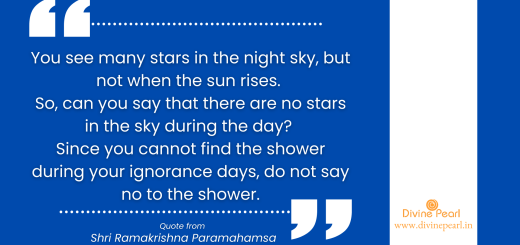Not Okay Inside? Here’s Why the Mind Can’t Solve Everything
Last week, one day, I found myself drowning in an emotional dilemma about some personal challenges — primarily, a fear of the future. I started feeling not okay within myself. The feeling lingered throughout the day, a discomfort whose exact reason was not specific. By evening, I felt lethargic and reluctant to go for my usual evening walk, something I do almost every day. Despite my hesitation, I made a conscious decision to push past my mind’s resistance and step out.

As I began walking slowly, I noticed what was happening inside me. My mind seemed to have taken control of my “self,” surrounding me with a dark cloud of thoughts — overthinking my challenges and letting emotions weigh me down. I could clearly observe the cycle of thoughts spinning, leaving me emotionally drained.
After walking for about half an hour, I stopped by a lake to relax. I was physically moving, but it felt like I was fighting an internal force.
I took a deep breath and told myself, “It’s okay if the worst happens. Let it happen.” In that moment, I realized I had no control over the past or the future. Suddenly, something remarkable occurred — the clouds of thought inside me vanished. My mind stopped dominating my “self,” and I felt a wave of relaxation and clarity. The heaviness began to lift.
This experience led me to reflect deeply on the nature of the mind and its role in our lives, ultimately leading to a powerful realization:
The Mind: A Servant, Not a Master
We often rely on the mind to “fix” anything and everything in our lives — from practical challenges to emotional dilemmas and even abstract existential questions. But is our mind truly equipped for all these tasks? Let’s explore this profound topic and see how recognizing the mind’s strengths and limitations can lead to a more balanced, harmonious, and fulfilling life.
The Dual Nature of the Mind
The mind is a powerful tool, capable of extraordinary achievements when used in the right context, and we should acknowledge this extra-ordinary role in our survival process in the evolution. It excels in tasks such as:
- Logical Thinking: Analyzing, organizing, and planning effectively.
- Problem-Solving: Making decisions grounded in clarity and data.
- Pattern Recognition: Drawing meaningful connections from past experiences.
However, the mind falters when faced with:
- Abstract Concepts: Struggling to comprehend ideas beyond time and space.
- Emotional Complexity: Becoming overwhelmed by deeply personal, emotion-laden issues.
- Existential Questions: Failing to grasp truths that transcend logic and reasoning.
Assigning tasks to the mind that it isn’t equipped to handle — such as resolving abstract fears or emotional dilemmas — often leads to confusion, fear, and anxiety.
The Mind as a Tool, Not a Master
The mind is like a skilled assistant — indispensable when used correctly but disastrous if allowed to dominate our “self”. Just as we wouldn’t expect our ears primarily to see or our skin primarily to hear, we shouldn’t expect the mind to master tasks beyond its natural capacity.
When the mind takes over as the master, it clouds judgment, fuels unnecessary fears, and cycles through overthinking. Recognizing its rightful place as a servant allows us to live with greater clarity and peace.
Why the Mind Fails at Certain Tasks
The mind’s primary function is to collect, process, and store information. While it excels in logic-based decisions, it lacks the depth required for understanding abstract or emotional complexities.
Albert Einstein captured this limitation beautifully: “We cannot solve our problems with the same thinking we used when we created them.”
Similarly, even the Bhagavad Gita provides timeless wisdom about the restless nature of the mind. Lord Krishna says: “The mind is restless, turbulent, obstinate, and very strong, O Krishna, and to subdue it, I think, is more difficult than controlling the wind.”
This verse emphasizes the importance of mastering the mind rather than allowing it to dominate our inner peace.
Practical Steps to Work with the Mind
- Recognize the mind’s limits: Don’t assign it tasks it isn’t designed to handle, such as resolving emotional or existential challenges.
- Practice mindfulness: Observe your thoughts without identifying with them.
- Embrace acceptance: Understand that not every fear or problem needs a solution.
- Tap into intuition: Trust your inner wisdom for emotional and abstract dilemmas.
- Relax into being: Step back and allow clarity to emerge naturally.
The Mind and Emotional Complexity
Emotional situations often lack clear structure or resolution. Assigning such challenges to the mind can lead to overthinking, self-doubt, and emotional distress. Turning inward — to the heart, intuition, or higher self — offers a more effective path to healing and understanding.
Closing Thoughts
The mind is brilliant at processing logic and data. Yet, when burdened with emotional or existential challenges, it often stumbles, creating stress and confusion. By understanding its strengths and limitations, we can live with greater peace, clarity, and purpose.
Let us remember: The mind is a servant, not a master. Use it wisely for tasks where it excels, but for the deeper truths of life, turn inward — to the infinite wisdom within you.
What are your thoughts on this perspective? How do you balance the role of your mind in your journey? — I’d love to hear your insights. ✌️
#Mindfulness #SelfAwareness #EmotionalHealth #InnerPeace #MindOverMatter #SelfMastery #MentalClarity #MindAndHeart #SpiritualGrowth #EmotionalBalance #InnerJourney #SelfReflection #PersonalGrowth #MindfulnessMatters #EmotionalHealing #MentalHealthAwareness #MindsetMatters #LifeBalance #ThoughtsAndFeelings #PeaceWithin #HolisticLiving
Connect with me:
Website: www.avyaktah.com
Email: connect@avyaktah.com
Linkedin: www.linkedin.com/in/avyaktah



